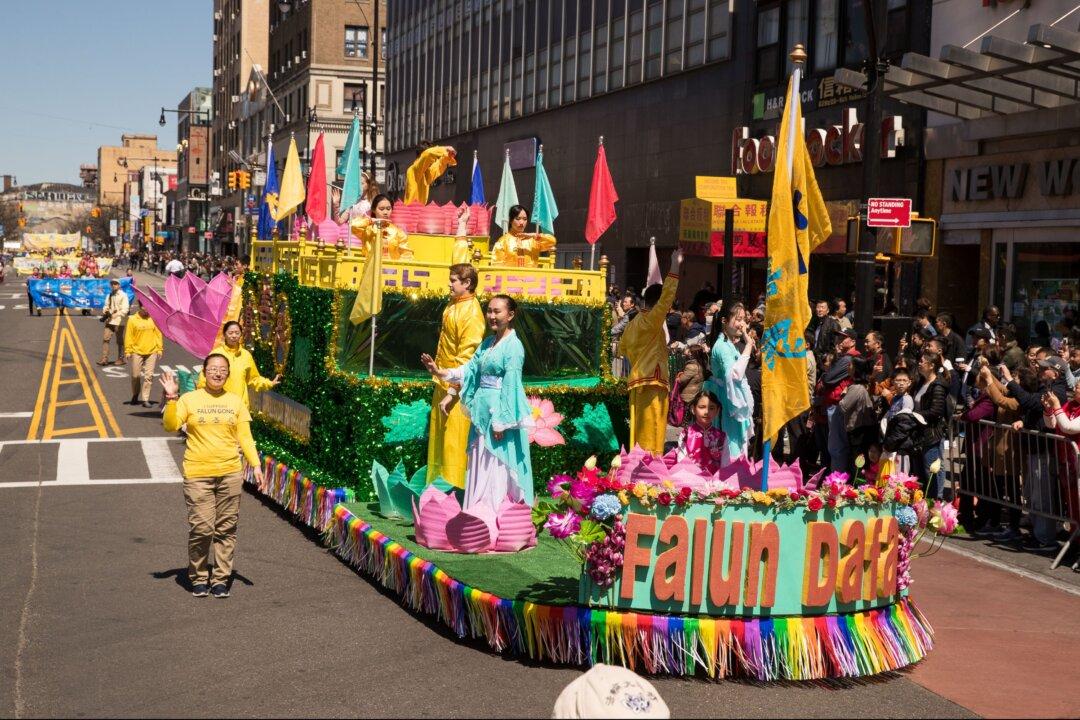Nineteen years ago, on April 25, more than 10,000 Falun Gong practitioners gathered in Beijing for one purpose: to ask authorities to uphold their constitutional right to freedom of belief.
Little did they know that their peaceful appeal would become a peaceful protest that continues nearly two decades later, in all parts of the world.
Falun Gong, also known as Falun Dafa, is a spiritual meditation practice rooted in the moral principles of truthfulness, compassion, and tolerance. Introduced in China in 1992, its benefits to physical and mental health spread through word of mouth, and by 1999, there were as many as 100 million practicing it, according to several Western media outlets quoting Chinese officials.
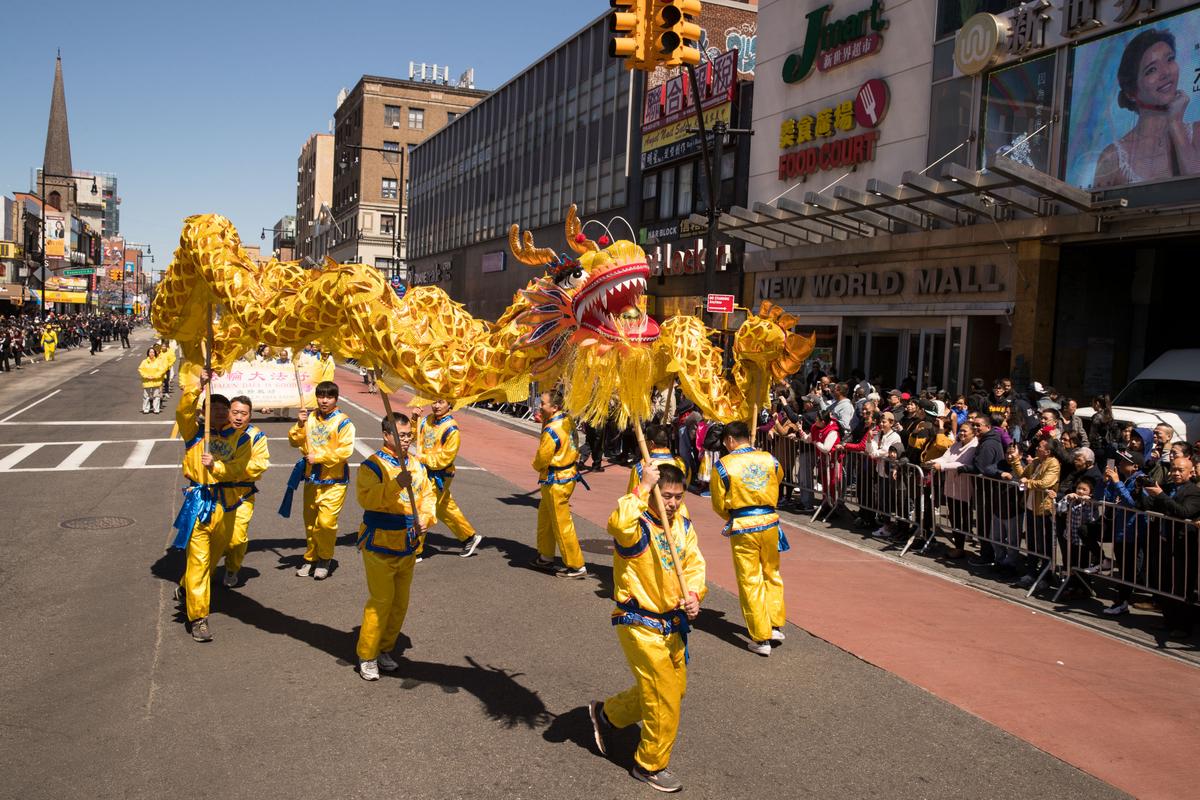
Falun Gong practitioners perform traditional Chinese dragon dancing at the parade in Flushing, Queens to commemorate the April 25, 1999 peaceful appeals. Larry Dai/The Epoch Times
But then-Chinese Communist Party leader Jiang Zemin, believing that Falun Gong’s popularity would undermine the Party’s authority and his own power, was determined to eradicate the practice from China.
Days prior to the largest public appeal in Beijing since the Tiananmen Square pro-democracy protests, an article was published in a magazine in nearby Tianjin City containing defamatory comments about Falun Gong. When practitioners in Tianjin appealed to local authorities to retract the article, they were arrested and beaten.
The Tianjin authorities told practitioners that the issue could only be resolved by the central authorities.
Word spread quickly among practitioners. On April 25, adherents from across the country arrived at the Central Appeals Office in Beijing, an agency that hears public complaints.
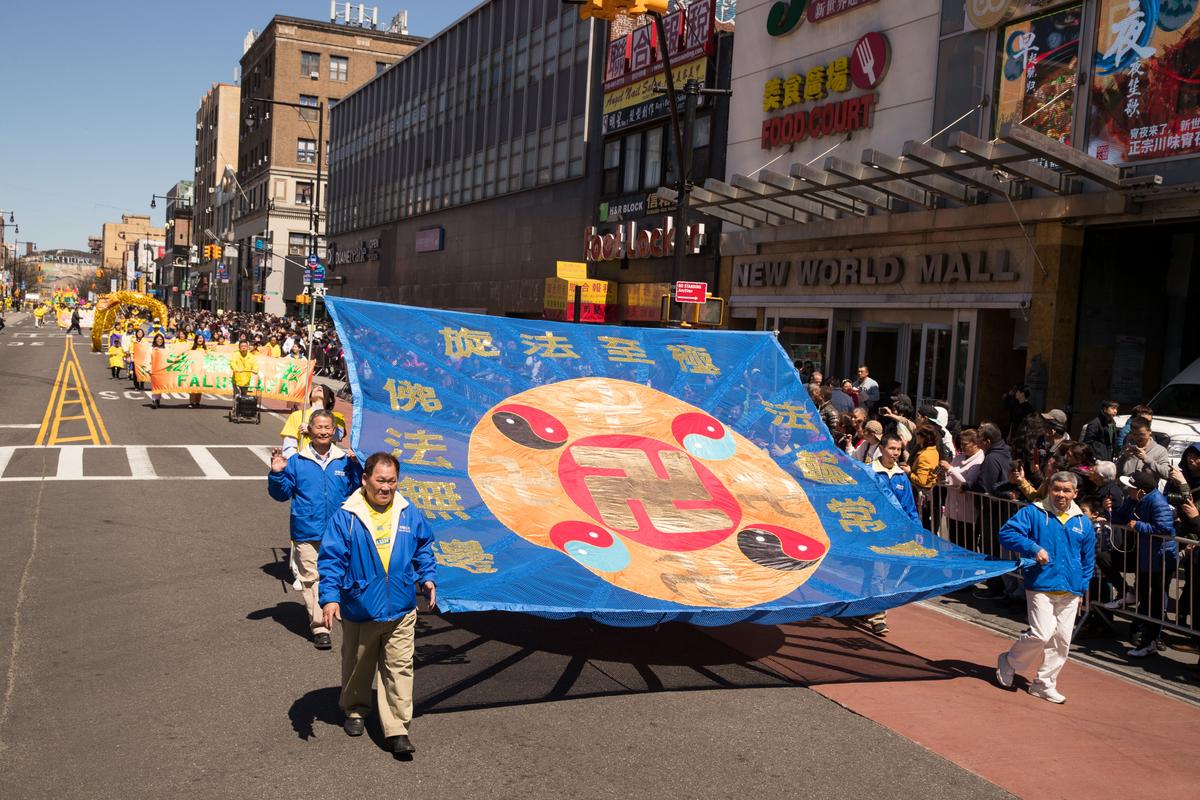
Falun Gong practitioners at a April 22, 2018 parade in Flushing, Queens to commemorate the 19th anniversary of a peaceful appeal by practitioners in mainland China on April 25, 1999. Larry Dai/The Epoch Times
That day, several Falun Gong practitioners met with then-premier Zhu Rongji and negotiated for the release of the Tianjin practitioners.
Those who had gathered just steps away from Zhongnanhai, the Communist Party’s leadership compound, left quietly upon hearing the good news, making sure to clean up any debris or garbage on the ground around them.
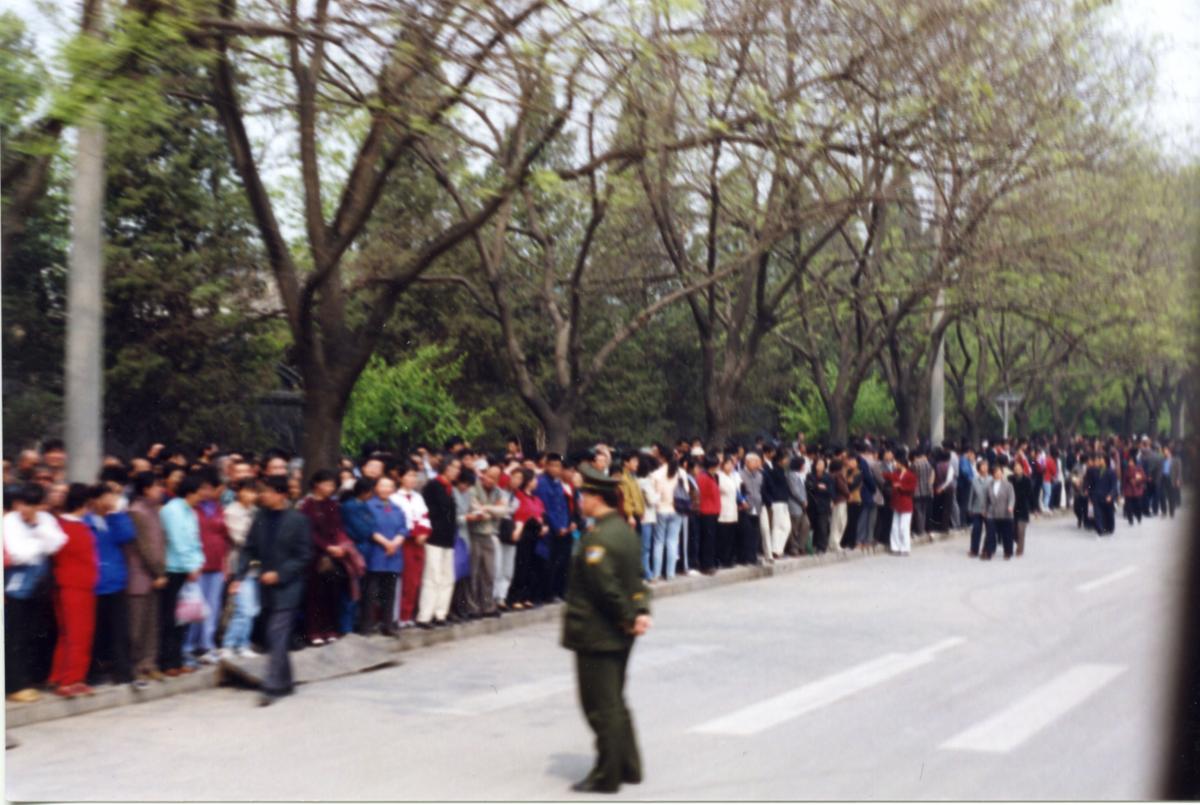
Falun Gong practitioners gather near Zhongnanhai to peacefully appeal for their freedom of belief on April 25, 1999. Photo courtesy of Minghui.org
They did not know that in a few months time, on July 20, Jiang would initiate a nationwide persecution of Falun Gong practitioners, mobilizing the state’s security apparatus to arrest and detain adherents.
More than 4,000 are confirmed to have died as a result of torture and abuse while in custody, although the real number is believed to be much higher, due to the difficulty of getting information out of China, according to the Falun Dafa Information Center, the group’s press office. In addition, large numbers of practitioners have been killed for their organs, used in China’s organ transplantation industry, according to independent researchers.
Raising Awareness
Since 1999, millions of Falun Gong practitioners around the world have raised awareness with citizens and governments about the violent suppression of Falun Gong in China.Zhao Yufeng was one of several Falun Gong adherents who took part in the historic April 25 appeal. She has since made her way to the United States.
On April 22, she and hundreds of practitioners from the New York and New Jersey area convened in Flushing, Queens, for a parade and rally to commemorate the April 25 event. In the evening, Falun Gong adherents participated in a candlelight vigil in front of the Chinese consulate to remember those who lost their lives to defend their freedom of belief.
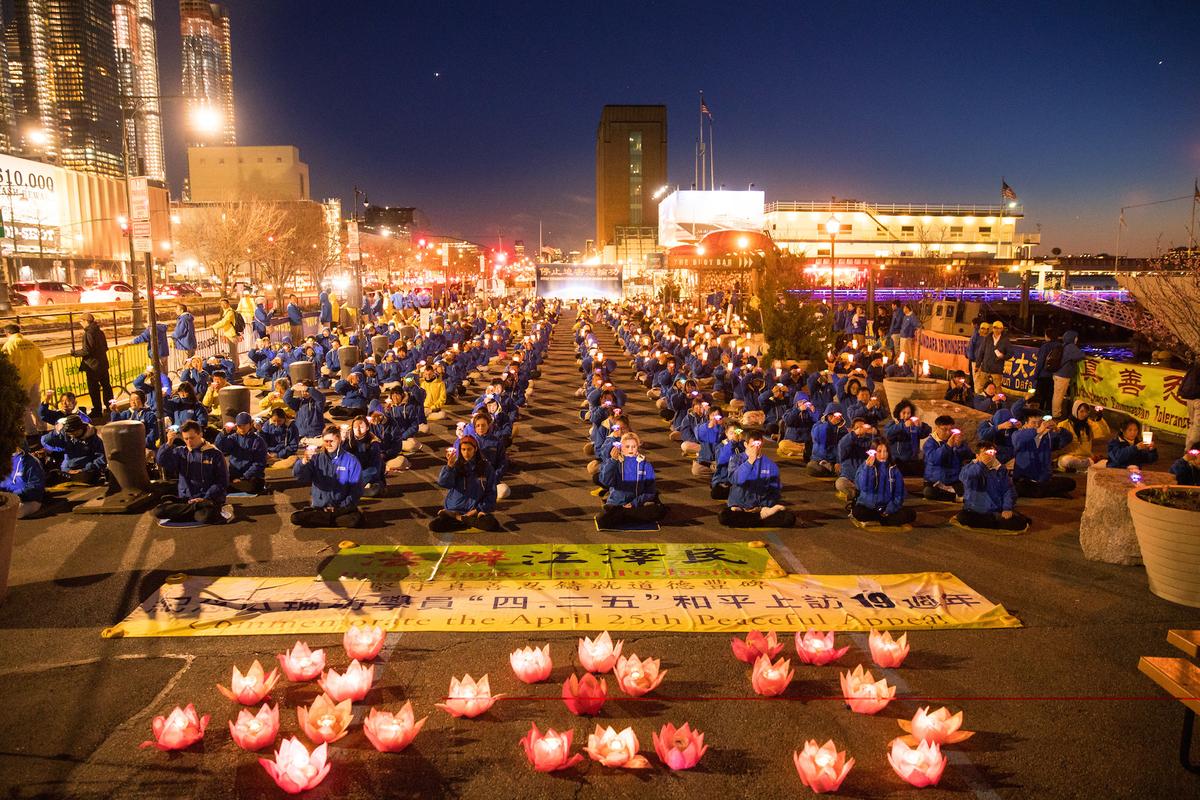
Falun Gong practitioners at a candlelight vigil near the Chinese consulate in New York City, on April 22, 2018. Mark Zou/The Epoch Times
Zhao, a Beijing resident at the time, recalled that when she got off the bus and walked toward the appeals office, there were already lines and lines of Falun Gong adherents standing on Fuyou Street, quietly standing or sitting on the ground while reading the main book of Falun Gong teachings, “Zhuan Falun.” Those gathered made sure to leave room for pedestrian traffic and a special pathway for the blind.
“It was a very peaceful atmosphere,” Zhao said. “Our thoughts were simple and pure. We just wanted to tell the government that they had been mistaken, that Falun Gong practitioners were good people who would not commit bad deeds.”
Zhao began practicing Falun Gong in May 1996; soon after, chronic illnesses she had such as hepatitis C and arthritis disappeared. She also was no longer easily angered. Zhao said she felt appealing was the right thing to do, to defend the practice that changed her into a better person. “The [state] propaganda on TV was all wrong,” she said. “I thought, maybe the government misunderstood [what the practice was about].”
Since the persecution in 1999, Zhao was harassed by police and forced into detention centers and brainwashing centers meant to psychologically coerce Falun Gong practitioners into giving up their faith.
At Sunday’s rally, Zhao felt a mix of emotions. Scenes from that fateful day resurfaced in her memories. “Inside China, Falun Gong practitioners are risking their lives to tell the truth [about the persecution],” Zhao said. Here in America, she could practice freely and tell others about Falun Gong freely. It was a completely different reality.

The Tianguo Marching Band, composed of Falun Gong practitioners, at Sunday's parade. Larry Dai/The Epoch Times
“I lived in a constant state of terror. The police could come anytime and harass me, ask questions, ask me to sign a letter promising I would give up the practice. The psychological pressure was enormous,” she said.
She hopes more people will come to know about the persecution in China and help end it. “It has been far too long,” she said.
Community leaders such as New York State Senator Tony Avella and Queens district leader Martha Vasquez also attended the Flushing rally to lend their support for Falun Gong’s nearly two decades of protests against the persecution in China.
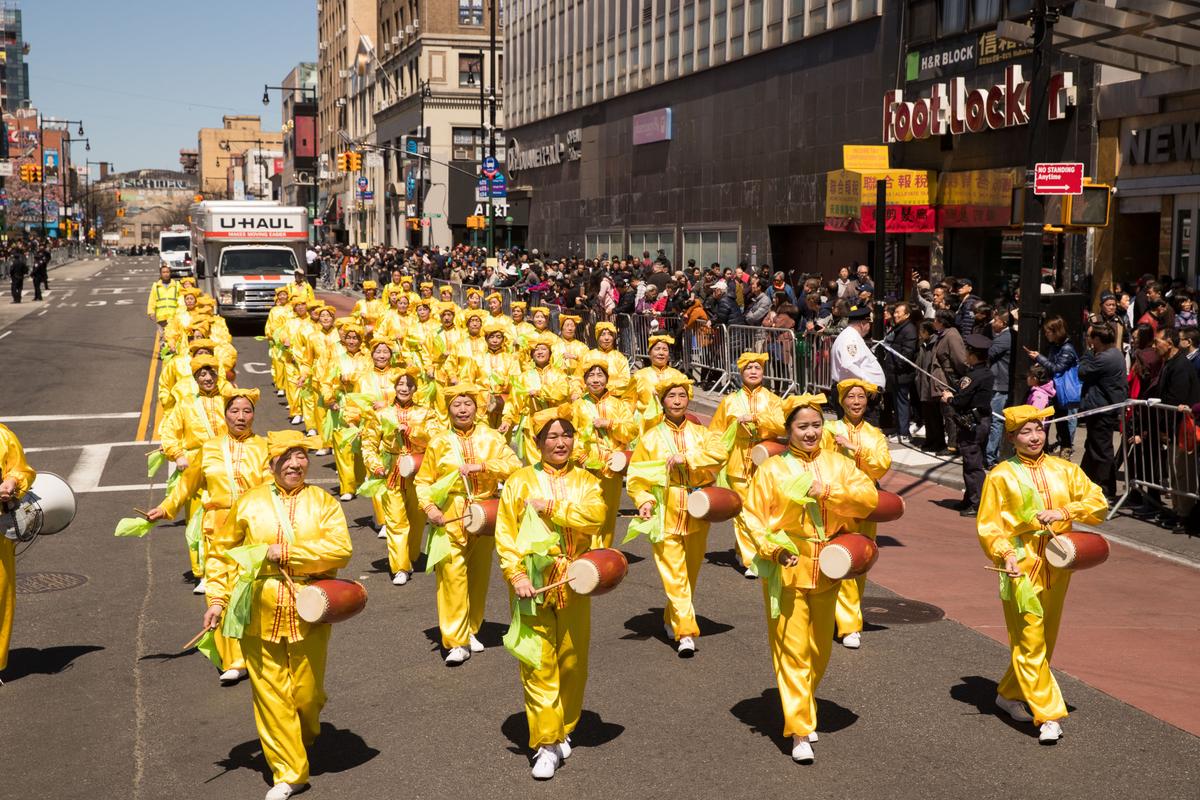
Falun Gong practitioners performing traditional Chinese waist drums, at Sunday's parade. Larry Dai/The Epoch Times
Li Taiping (pseudonym), a human rights lawyer who has helped defend Falun Gong practitioners in China, also attended Sunday’s parade. He was overjoyed at being able to witness so many practitioners openly expressing their beliefs. “This would be unimaginable in China,” he said. “I hope that one day, this scene can take place in the mainland.”
Lin Dan contributed to this report.
Recommended Video:
